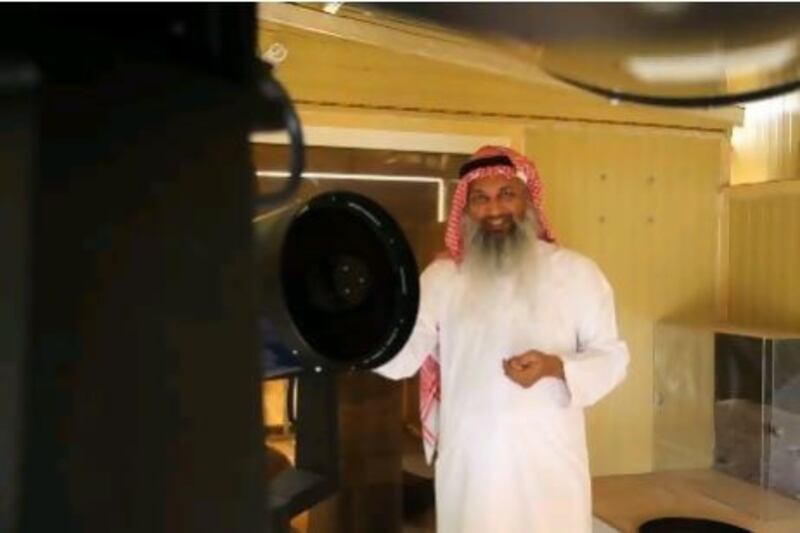This year is a time of much astronomical activity. We meet Hasan Ahmad Mohd Al Hariri, a longtime stargazer dedicated to experiencing it all.
You may not have been aware of it, but for the past month, the northeast skies of the UAE have been home to one of the most spectacular meteor showers of the year.
At this time each year, streaks of light can be seen in the pitch black darkness of the desert sky. These are interplanetary rocks and debris which vaporise high in Earth's upper atmosphere. Travelling at tens of thousands of kilometres an hour, they ignite 50 to 130 kilometres above the ground and appear as shooting or falling stars. When viewed en masse they create a stunning visual show.
This astronomical spectacle, called The Perseids and ending today, would be easily missed by residents of the UAE's cities, where the glare of bright lights can make it almost impossible to view.
Not to worry though, says Hasan Ahmad Mohd Al Hariri, a Yemeni national who was born in Dubai, as there are many other astronomical splendours to take in. In fact, he says, there is something of interest happening in the sky nearly every week throughout this year.
"The skies are full of wonder," says the 45-year-old amateur astronomer, with heartfelt enthusiasm. "There are just so many amazing astronomical sites to see."
Al Hariri was just a little boy when his brother brought home a textbook with hand-drawn illustrations of stars. This fuelled an interest that has, over the years, developed into a passion and led to a lifetime of studying the skies. It was this interest that led him, along with six other enthusiasts, to set up The Dubai Astronomy Group.
Although not the only astronomy group in the UAE, it's now one of the most popular, with more than 3,000 members and links to other groups around the world in far-flung locations including Ecuador and Fiji.
The group has a camp in Zubair, Sharjah, and runs regular trips to the desert for the purpose of viewing the planets. Its members also own equipment and facilities to the tune of Dh4 million. Although they receive private donations from time to time, the majority of funding has come from its founders.
The non-profit organisation runs regular seminars and is now operating in six local schools, offering educational tutorials on the topic. There are also trips to the desert for "stargazing parties", all with the aim of educating the masses about astronomy.
"Astronomy is a wonderful tool for bringing people together," says Al Hariri. "It gives them a common interest and therefore helps them to understand each other. What's more, in looking at the stars, we realise just how big the world really is and just how minuscule we are. It makes you question the meaning of life, and that is really something."
Muslims can find numerous references to the stars in the Quran, he explains.
"Our religion actually tells us to study the sky. The Quran contains many verses which refer to them and even the Islamic calendar is lunar-based."
Despite a lifetime of stargazing, he never tires of it.
"I was 16 years old the first time I looked through the lens of a telescope and saw the Moon," he says. "I will never forget how I felt - it was just so beautiful, I was in awe. But you know, I still feel that way every time I look through a telescope now. I continue to be humbled by looking at the stars."
The Dubai Astronomy Group is open to all, and those who are interested should visit the group's website (www.dubaiastronomygroup.com), register and pay a visit to the camp - free of charge.
Follow
Arts & Life on Twitter
to keep up with all the latest news and events
[ @LifeNationalUAE ]





